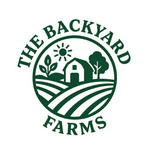As more people embrace the joys of backyard chicken keeping, it's vital to recognize the ethical responsibilities that come with caring for these feathered friends. Chicken welfare goes beyond simply providing food and shelter; it encompasses creating an environment that allows chickens to express their natural behaviors and live fulfilling lives. In this blog, we'll explore the ethical considerations involved in responsible chicken keeping and why prioritizing chicken welfare is essential for both the birds and their keepers.
The Right to Roam
At the core of chicken welfare is the provision of ample space for these birds to roam and express their natural behaviors. Chickens are naturally curious and active creatures that thrive when given room to explore. Whether they're scratching for bugs, dust bathing, or simply stretching their wings, access to outdoor space is crucial for their physical and mental well-being. For backyard chicken keepers, this means ensuring that coops and runs are spacious enough to accommodate the flock comfortably, allowing them to move freely and engage in their natural behaviors without feeling cramped or confined.
The Importance of Social Interaction
Chickens are highly social animals that form complex hierarchies within their flocks. Social interaction is essential for their mental health and overall well-being. Providing opportunities for chickens to interact with one another fosters a sense of community and belonging, reducing stress and boredom. This can be achieved by keeping chickens in small groups or flocks, allowing them to establish social bonds and engage in behaviors such as grooming, preening, and vocalizing. Additionally, spending time with your chickens and interacting with them positively can strengthen the bond between humans and birds, enriching both parties' lives
Access to Natural Behaviors
In addition to space and social interaction, chickens also require access to opportunities for natural behaviors such as foraging, dust bathing, and roosting. Foraging allows chickens to search for food and peck at the ground, satisfying their natural instinct to hunt and explore. Providing areas with mulch, dirt, or grass where chickens can scratch and peck for insects and vegetation is essential for their mental stimulation and physical health. Dust bathing is another vital behavior that helps chickens maintain healthy feathers and skin while also serving as a form of relaxation and social bonding. Offering a designated dust bathing area filled with fine sand or dust encourages chickens to engage in this behavior regularly. Finally, providing roosting perches and structures within the coop allows chickens to rest comfortably off the ground, mimicking their natural roosting instincts and promoting restful sleep.
In closing, responsible chicken keeping involves more than just providing food and shelter; it requires a commitment to prioritizing the welfare and well-being of these remarkable birds. By ensuring they have adequate space, social interaction, and access to natural behaviors, we can create environments where chickens can thrive and flourish. As stewards of these animals, it's our duty to uphold ethical standards in chicken keeping, honoring the value of each bird and treating them with the care and respect they deserve. By embracing the principles of chicken welfare, we not only enhance the lives of our feathered companions but also enrich our own experiences as backyard chicken keepers.


